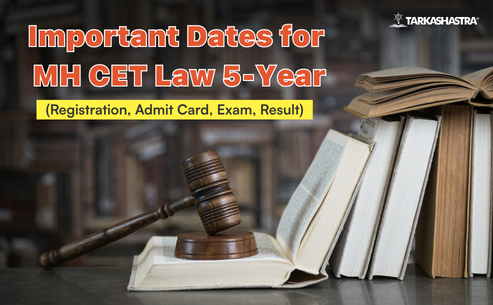Every few years, students across India face the same crossroads — “What should I do after 12th?” Engineering, Medicine, Management, Design… and now increasingly, Law. But the law of 2026 is not the law of old dusty courtrooms — it’s the backbone of modern India’s corporate world, policy think-tanks, tech firms, and international diplomacy.
With rapid changes in business, data privacy, and global governance, legal professionals are in higher demand than ever. From startups drafting AI compliance policies to global firms handling mergers, lawyers are the ones who make it all possible.
In this article, we’ll explore 10 strong reasons why choosing law in 2026 can be one of the smartest, most future-proof career moves you can make — whether you’re a student after 12th or a graduate looking for a new direction.
| Quick Glance | Key Highlights |
| Focus Year | Law Admissions 2026 (CLAT, AILET, SLAT, MH CET Law, NLAT, Christ University) |
| Ideal For | Students after 12th (Arts, Commerce, Science) & Graduates (for 3-Year LLB) |
| Core Message | Law offers diversity, respect, global scope, and long-term stability |
| Powered By | Tarkashastra – India’s Leading Law Entrance Coaching Academy |
Understanding Law as a Career in India
Before you decide why to choose law, it’s important to understand what the law journey actually looks like in India.
A career in law after 12th opens multiple pathways — from courtroom advocacy to corporate consulting, from policymaking to entrepreneurship. Today’s legal education goes far beyond black coats and courtrooms; it’s about building analytical thinkers who can interpret the changing rules of business, society, and governance.
Students can pursue law through two primary routes —
- A 5-year integrated program right after Class 12, or
- A 3-year LLB program after completing graduation.
Here’s a quick breakdown
| Program Type | Eligibility | Duration | Common Entrance Exams | Popular Degrees | Ideal For |
| 5-Year Integrated Law Program | After Class 12 (Any Stream) | 5 Years | CLAT, AILET, SLAT, MH CET Law (5-Year), NLAT, Christ University Entrance | BA LLB, BBA LLB, BCom LLB | Students who want an early start and integrated exposure to law + management/social sciences |
| 3-Year LLB Program | After Graduation (Any Stream) | 3 Years | MH CET Law (3-Year), DU LLB, LSAT–India (3-Year) | LLB | Graduates from any field seeking a legal career or transition from another profession |
Unlike older generations, where law was considered “Plan B,” the 2026 aspirant sees it as a primary choice — because it blends intellect, influence, and impact.
And to begin this journey, aspirants must crack one of the top law entrance exams in India, which we’ll discuss later in the blog.
Top 10 Reasons to Choose Law in 2026
- Expanding Career Opportunities in Every Sector
If you think a law degree limits you to courtrooms — think again.
The scope of law in India in 2026 extends far beyond litigation. As India’s economy diversifies into technology, corporate governance, sustainability, finance, and global trade, the demand for legal professionals has multiplied across sectors.
Today, every business — from a fintech startup to a multinational conglomerate — needs legal experts to navigate contracts, compliance, data security, and intellectual property. Even NGOs, policy think-tanks, and government agencies require trained legal minds to interpret evolving laws and social reforms.
Here’s a snapshot of how the legal profession has diversified across industries:
| Sector / Domain | Typical Legal Roles | Key Recruiters / Examples | Growth Trend (2026 Outlook) |
| Corporate & Business Law | Legal Associate, Compliance Officer, M&A Analyst | AZB & Partners, Trilegal, Deloitte Legal | High — expanding with global business regulations |
| Technology & Data Privacy | Cyber Law Expert, AI Policy Analyst | TCS, Infosys, Microsoft, Government Think-Tanks | Very High — driven by AI, fintech, and data laws |
| Litigation & Judiciary | Advocate, Judicial Clerk, Legal Researcher | Courts, Tribunals, Law Firms | Steady — consistent opportunities for core law practice |
| Intellectual Property Rights (IPR) | Patent Attorney, IP Consultant | WIPO, K&S Partners, Tech Startups | High — innovation & startups surge |
| Public Policy & Governance | Legal Researcher, Policy Analyst | NITI Aayog, PRS India, Government Ministries | Moderate to High — increasing youth participation |
| Environmental & Energy Law | Sustainability Advisor, ESG Compliance Manager | UNEP, Vedanta, ReNew Power | High — linked to global ESG norms |
According to the Bar Council of India (BCI), law graduates today find opportunities in over 30+ sectors, making it one of the most diverse and employable professional degrees in the country.
In short, law has evolved into a career that combines security, diversity, and purpose — and in 2026, it’s growing faster than ever.
- Law Offers a Diverse Range of Specialisations
One of the biggest strengths of pursuing law as a career in India is the freedom to choose your own niche.
Whether you’re fascinated by business, technology, environment, or human rights, there’s a legal branch designed for you.
In 2026, law aspirants can explore dozens of specialisations that align with their interests and the evolving job market. Here’s a look at some of the most popular and emerging domains:
| Specialisation | What It Focuses On | Top Career Roles | Ideal For Students Who… |
| Corporate Law | Business contracts, mergers, and company governance | Corporate Lawyer, Compliance Manager | Enjoy commerce, management & finance |
| Criminal Law | Crime, evidence, and justice delivery | Criminal Lawyer, Public Prosecutor | Have strong ethics & persuasive skills |
| Civil Law | Property, family, and individual rights | Civil Litigator, Family Lawyer | Value conflict resolution & empathy |
| Intellectual Property Rights (IPR) | Patents, copyrights, trademarks | IP Consultant, Patent Attorney | Are creative & tech-oriented |
| Cyber & Technology Law | Data privacy, AI, cybersecurity | Cyber Law Expert, Policy Analyst | Love tech, AI & digital policy |
| International Law | Cross-border trade & human rights | Diplomatic Legal Advisor, Arbitrator | Want global exposure |
| Environmental & Energy Law | Sustainability & climate regulation | ESG Consultant, Environmental Lawyer | Are eco-conscious & policy-driven |
| Constitutional & Human Rights Law | Civil liberties, equality & governance | Legal Researcher, NGO Advocate | Are passionate about justice & social change |
Each field demands a different skill set — analytical thinking for corporate law, empathy for family law, and global awareness for international law.
The beauty of this profession lies in its flexibility: you can specialise in one area, diversify later, or even blend multiple domains like tech + policy law or business + environment law.
- A Profession That Commands Respect and Social Impact
Among all professional fields, law holds a unique position of dignity, responsibility, and influence. Lawyers don’t just argue cases — they shape justice, guide governance, and protect citizens’ rights. Choosing law as a career in India means choosing to stand up for what’s right and becoming a voice for those who can’t be heard.
The benefits of studying law go far beyond financial stability. It builds empathy, confidence, and moral courage — qualities that make you not only a good professional but also a responsible citizen.
Throughout history, many of India’s greatest leaders — Mahatma Gandhi, Dr. B.R. Ambedkar, Sardar Vallabhbhai Patel — began their journeys as lawyers. Even today, legal professionals play a central role in public policy, corporate ethics, and social reform.
| Impact of Law on Society | Examples in Action |
| Justice Delivery | Advocates defending fundamental rights in landmark cases |
| Social Change | Legal NGOs supporting gender equality & education rights |
| Corporate Accountability | Legal teams ensuring ethical and sustainable business practices |
| Public Policy | Law graduates drafting bills, advising ministries, and shaping regulations |
In an era where misinformation, digital fraud, and social injustice are on the rise, the lawyer’s role in society is more critical than ever. By choosing law in 2026, you’re not just selecting a career — you’re choosing to influence how truth and fairness function in the real world.
- Strong Earning Potential and Job Security
While passion and purpose drive many law aspirants, let’s be honest — career stability and financial growth matter too.
The good news? A law degree in India today offers both.
From high-paying corporate law firms to judicial services and legal consulting, lawyers are among the few professionals whose income grows steadily with expertise and reputation. As India’s economy globalises and new laws emerge (data protection, ESG compliance, AI regulation), the earning potential for legal professionals is higher than ever.
Here’s a snapshot of typical pay scales across major legal career paths in 2026:
| Career Path | Average Starting Salary (₹ per annum) | Experienced Level (₹ per annum) | Key Recruiters / Sectors |
| Corporate Lawyer (Top Law Firms) | ₹10–15 LPA | ₹25–40 LPA+ | AZB & Partners, Trilegal, Khaitan, SAM |
| In-House Legal Counsel (MNCs) | ₹6–12 LPA | ₹20–30 LPA | Tata Group, Infosys, Deloitte, Accenture |
| Judicial Services (Civil Judge, Magistrate) | ₹8–10 LPA | ₹15–25 LPA | Government (Judiciary, State PSCs) |
| Law Firm Associate (Mid-tier firms) | ₹5–8 LPA | ₹12–18 LPA | Boutique & regional firms |
| Legal Advisor / Consultant | ₹4–7 LPA | ₹10–15 LPA | Startups, NGOs, Think Tanks |
| Litigation Practice (Independent) | ₹2–5 LPA (initially) | Unlimited (based on reputation) | Courts, Chambers, Private Clients |
Note: Top graduates from NLUs or reputed law schools often receive international placements or LL.M. scholarships abroad, further increasing career prospects.
Unlike many volatile fields, legal careers maintain relevance and income stability even during economic downturns — making law a profession that not only earns respect but also pays it forward.
- Global Exposure and Opportunities Abroad
A law degree no longer confines you within national borders — it opens doors to international careers, global law firms, and higher education abroad.
With India’s growing integration into the global economy, Indian law graduates are increasingly working across countries in roles related to corporate law, arbitration, trade, and international policy.
Many top law schools worldwide — including Harvard, Oxford, Cambridge, and LSE — actively accept Indian students for LL.M. programs after their 3-year or 5-year LLB. These degrees not only enhance global exposure but also boost credibility in domestic corporate and consulting markets.
Here’s a quick look at global pathways for Indian law graduates:
| Opportunity Type | Destinations / Institutions | Career Outcomes |
| LL.M. Abroad | Harvard, Oxford, LSE, Columbia, NUS, Melbourne Law School | International Law, Arbitration, Human Rights |
| Global Law Firms | Clifford Chance, Linklaters, Baker McKenzie | Cross-border M&A, Compliance, IP Law |
| International Organizations | UN, WTO, Amnesty International | Policy & Human Rights Law |
| Remote/Hybrid Legal Roles | Global Legal Process Outsourcing, AI Compliance | Legal Analytics, Contract Management |
As the world moves toward borderless business and digital law, the demand for professionals who understand both Indian and international legal systems is skyrocketing.
So, if you aspire for a career that takes you beyond boundaries, law is one of the few degrees that can truly make that happen.
- Emerging Fields – Tech Law, AI & Data Privacy
The world of law is evolving faster than ever — and technology is leading the charge.
As Artificial Intelligence, data analytics, blockchain, and fintech reshape the global economy, a new generation of lawyers is needed to define the rules of the digital world.
The introduction of India’s Digital Personal Data Protection Act (DPDP Act) and upcoming AI regulation frameworks has created an entirely new domain — Technology & Data Privacy Law.
This means that by 2026 and beyond, tech-savvy law graduates will be among the most sought-after professionals.
| Emerging Domain | Key Focus Areas | Career Roles (2026 Onwards) | Why It’s Growing |
| Cyber Law | Hacking, digital frauds, cybercrimes | Cyber Law Expert, IT Act Consultant | Surge in online financial crimes |
| Data Protection & Privacy Law | Consent, data storage, user rights | Data Privacy Officer, Compliance Advisor | Enforcement of DPDP Act & global GDPR equivalents |
| AI & Tech Regulation | AI ethics, algorithmic accountability | AI Policy Analyst, Legal Technologist | Rapid adoption of AI across industries |
| Fintech & Blockchain Law | Crypto regulation, smart contracts | Fintech Legal Advisor, Blockchain Counsel | Growth in digital currency & DeFi systems |
Law graduates entering this field are not just lawyers — they are policy architects of the digital future.
And with global companies hiring for hybrid legal–tech profiles, Tech Law is among the hottest career options for the Class of 2026.
- Early Career Start with 5-Year Integrated Programs
One of the most practical advantages of choosing law as a career after 12th is the ability to start early through 5-year integrated programs.
Instead of spending three years on an undergraduate degree and then pursuing a 3-year LLB, students can directly enrol in a BA LLB, BBA LLB, or BCom LLB course after Class 12 — saving time and gaining a strong multidisciplinary foundation.
These integrated law programs combine legal education with arts, commerce, or management — preparing students for diverse roles in business, policy, and litigation.
| Aspect | 5-Year Integrated LLB | 3-Year LLB (Post-Graduation) |
| Eligibility | After Class 12 (any stream) | After Graduation (any stream) |
| Duration | 5 Years (Law + UG combined) | 3 Years (Law only) |
| Popular Exams | CLAT, AILET, SLAT, MH CET Law (5-Year), NLAT, Christ Entrance | MH CET Law (3-Year), DU LLB, LSAT–India |
| Degree Options | BA LLB, BBA LLB, BCom LLB | LLB |
| Career Start | Earlier entry into corporate or judiciary roles | Later start, often with work experience |
This route not only gives students an early exposure to internships and moot courts but also helps them build stronger networks with alumni, law firms, and mentors.
For aspirants serious about a long-term legal career, integrated law programs are the smartest investment in 2026.
- Intellectual Challenge and Skill Development
If you love to question, analyse, argue, and reason, law is the perfect match for your mind.
Unlike rote-heavy courses, legal education is built around critical thinking, problem-solving, and communication. Every case you study, every argument you form, and every statute you interpret trains your brain to think sharper and deeper.
The skills required for law go far beyond memorising sections or precedents. Law schools focus on developing a well-rounded professional — someone who can reason like a judge, write like a journalist, and speak like a leader.
| Skill Area | How It Develops During Law School | Career Impact |
| Analytical Thinking | Case analysis, moot courts, research papers | Strong decision-making & logical reasoning |
| Communication Skills | Debates, client counselling, presentations | Confidence in legal practice & corporate meetings |
| Research & Writing | Drafting petitions, contracts, policy briefs | Precision & professionalism in documentation |
| Negotiation & Advocacy | Simulated trials, internships, teamwork | Helps in dispute resolution & leadership roles |
| Ethics & Empathy | Legal aid, pro bono work, community outreach | Builds social responsibility & credibility |
Simply put, law teaches you how to think, not what to think — a skill that’s invaluable in any career you pursue thereafter.
- Pathways Beyond Courtrooms — Corporate, Policy, Media & More
Gone are the days when a law degree meant spending your career in a courtroom.
In 2026, law graduates are thriving across diverse industries — from boardrooms to newsrooms, from government offices to global think-tanks.
Law is now seen as a gateway degree that opens doors to multiple professions where analytical ability, reasoning, and communication are valued.
Whether you want to work in a multinational corporation, influence government policy, or shape public opinion, your legal background gives you an undeniable edge.
| Career Path | Description / Work Profile | Common Employers / Sectors | Average Salary Range (₹ per annum) |
| Corporate Legal | Drafting contracts, mergers, compliance | MNCs, Big 4, Law Firms | ₹8–25 LPA |
| Public Policy & Governance | Researching, framing, or reviewing laws and policies | NITI Aayog, PRS India, Govt. ministries | ₹6–15 LPA |
| Legal Journalism & Media | Covering legal issues, writing analysis, reporting judgments | The Hindu, LiveLaw, Bar & Bench | ₹4–10 LPA |
| Legal Consulting / Startups | Advising startups on policies & compliance | Consulting Firms, Fintech Startups | ₹6–20 LPA |
| Academia & Research | Teaching or working with think tanks and universities | NLUs, Research Institutes | ₹5–12 LPA |
| NGOs & International Organizations | Human rights, gender justice, legal awareness | UN, Amnesty, Teach for India | ₹4–10 LPA |
So if courtroom practice doesn’t excite you, law still offers dozens of fulfilling, high-impact career options.
Your degree becomes a versatile foundation — one that blends perfectly with business, media, technology, and governance.
- A Profession with Long-Term Stability and Legacy
In a rapidly changing world where careers rise and fall with technology, law remains one of the few professions that never goes out of demand.
Every new policy, dispute, business deal, or innovation requires legal interpretation — and that’s what gives this field its unshakeable stability.
Whether you choose to practice in courts, work in corporations, or move into academia, a legal career grows stronger with time. Your experience, network, and reputation compound — turning your name into your greatest asset.
| Stage of Career | Typical Role | Key Growth Indicators |
| Early Career (0–3 yrs) | Associate, Junior Advocate, Legal Analyst | Learning casework, research & documentation |
| Mid Career (4–10 yrs) | Senior Associate, Legal Counsel, Lecturer | Managing cases, mentoring juniors, client handling |
| Established (10+ yrs) | Partner, Judge, Policy Advisor, Professor | Thought leadership, firm ownership, social impact |
Even after retirement, lawyers often continue as consultants, arbitrators, or educators, ensuring intellectual engagement throughout life.
In 2026 and beyond, as India’s legal and corporate landscape expands, law stands tall as a career of stability, respect, and legacy — one that evolves with society rather than being replaced by it.
Top Law Entrance Exams to Begin Your Journey (2026 Edition)
Once you’ve decided to pursue law, the next step is clear — clearing the right entrance exam.
In India, top law universities and colleges admit students through national-level and state-level exams. Each exam tests logical reasoning, legal aptitude, current affairs, and English proficiency — but their structure, eligibility, and acceptance vary.
Here’s a quick overview of the major law entrance exams for 2026 admissions:
| Exam Name | Conducting Body | Programs Offered | Exam Month (Tentative) | Top Accepting Colleges / Universities |
| CLAT 2026 (Common Law Admission Test) | Consortium of NLUs | 5-Year BA LLB, 1-Year LLM | December 2025 | 26 NLUs (NLSIU, NALSAR, NUJS, NLU Delhi*, etc.) |
| AILET 2026 (All India Law Entrance Test) | NLU Delhi | BA LLB (Hons), LLM, PhD | December 2025 | National Law University, Delhi |
| MH CET Law 2026 | CET Cell Maharashtra | 3-Year LLB & 5-Year LLB | March–April 2026 | GLC Mumbai, ILS Pune, Rizvi, Modern Law College |
| SLAT 2026 (Symbiosis Law Admission Test) | Symbiosis International (Deemed) University | 5-Year BA LLB (Hons), BBA LLB (Hons) | December 2025 | SLS Pune, Noida, Hyderabad, Nagpur |
| NLAT 2026 (National Law Aptitude Test) | NLSIU Bengaluru | 5-Year BA LLB (Hons) | April 2026 | NLSIU Bengaluru |
| Christ University Law Entrance 2026 (CUET) | Christ (Deemed to be University), Bengaluru | 5-Year BA LLB, BBA LLB | April 2026 | Christ University (Bengaluru, NCR, Pune–Lavasa) |
Tip for Aspirants:
- For Class 12 students, CLAT, AILET, SLAT, NLAT, and MH CET (5-Year) are the best entry points.
- For graduates, MH CET Law (3-Year) is ideal.
- Many private universities (like Christ and Jindal Global) conduct their own entrance tests or consider CUET (UG) scores.
At Tarkashastra, students receive structured mentorship for all these exams — with personalized study plans, mock analysis, and expert guidance from NLU alumni mentors to help them ace 2026 entrances confidently.
How Tarkashastra Helps You Begin Your Law Journey?
Choosing law is only the first step — the real challenge lies in cracking the entrance exams that open doors to India’s top law colleges. That’s where Tarkashastra, one of India’s most trusted institutes for law entrance preparation, becomes your perfect mentor.
With dedicated courses for CLAT, AILET, MH CET Law (3-Year & 5-Year), SLAT, NLAT, and Christ University Entrance, Tarkashastra has built a proven ecosystem that transforms aspirants into achievers.
| Why Students Choose Tarkashastra | What You Get |
| Expert Mentorship by NLU & IIM Alumni | Personalized 1-to-1 guidance & performance review |
| Structured Study Portal | 300+ topic tests, 10,000+ questions, and full-length mocks |
| Current Affairs & Legal Updates | Weekly analysis of legal GK and judgment summaries |
| Interview & PI Training | Mock interviews for law school admission rounds |
| Pan-India Success Network | Top results across CLAT, MH CET Law, and SLAT 2025–26 |
At Tarkashastra, preparation isn’t just about marks — it’s about mentorship, mindset, and mastery. If you’re aiming for NLUs, Symbiosis, Christ, or top Maharashtra law colleges, this is your launchpad.
Start your 2026 law journey with Tarkashastra today — where every student learns, leads, and leaves a legacy.
Law in 2026 – A Career of Intellect, Influence & Impact
The world is changing — and the rule of law is what keeps it balanced.
In 2026, pursuing law isn’t just about courtroom battles or legal jargon. It’s about solving real problems, influencing decision-making, and standing for fairness in a complex, digital-first world.
Whether you dream of joining a top corporate firm, shaping public policy, or fighting for justice, law gives you the intellect to reason, the platform to lead, and the power to create change.
At Tarkashastra, we believe that great lawyers are not born — they’re mentored.
With structured preparation, 1-to-1 guidance, and real-world exposure, every aspirant can turn ambition into achievement.
So, if you’re ready to choose a career that combines purpose, prestige, and prosperity — choose law. Choose your future. Choose Tarkashastra.
FAQs on Choosing Law as a Career in 2026
1. Is law a good career choice in 2026?
Yes, law is among the most stable and respected careers in India. With rising corporate, digital, and policy-related opportunities, demand for qualified legal professionals is at an all-time high.
2. What are the main benefits of studying law?
Law develops analytical thinking, communication skills, confidence, and awareness about rights and governance. It offers both social impact and strong financial growth.
3. Can I pursue law after 12th commerce or science?
Absolutely. Students from any stream — Arts, Commerce, or Science — can appear for CLAT, AILET, SLAT, or MH CET Law (5-Year) after Class 12.
4. Which law entrance exam is best for me?
CLAT and AILET are ideal for top NLUs, SLAT for Symbiosis, and MH CET Law for Maharashtra colleges. Christ University and NLAT also offer strong options depending on location preference.
5. What is the average salary after completing LLB in India?
Fresh law graduates from reputed colleges earn around ₹6–10 LPA, while experienced corporate lawyers and counsels can earn ₹20–40 LPA or more.
6. Can law graduates work in corporate or non-litigation roles?
Yes. Many lawyers work in compliance, consulting, policy, and corporate strategy without ever entering a courtroom.
7. What is the future scope of law in India?
The future is bright — new fields like cyber law, AI regulation, and fintech law are creating modern, high-paying job profiles for young lawyers.
8. Can I pursue law abroad after completing LLB in India?
Yes. Many Indian law graduates go on to pursue LL.M. degrees abroad at universities like Harvard, Oxford, and LSE. International exposure enhances your expertise and global career options.
9. What are the top skills required to succeed in the legal profession?
Strong analytical thinking, effective communication, research ability, negotiation, and ethical judgment are essential to succeed as a lawyer or legal professional.
10. Are scholarships or financial aid options available for law aspirants?
Yes. Many universities, NLUs, and private foundations offer merit-based and need-based scholarships for law students. CLAT and AILET toppers often receive tuition waivers or financial support.







